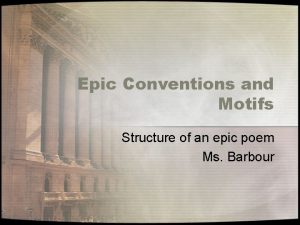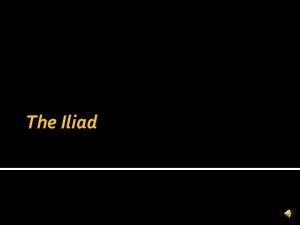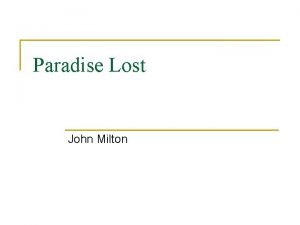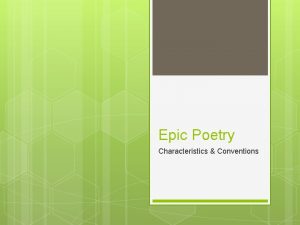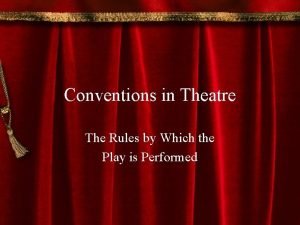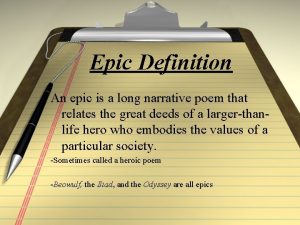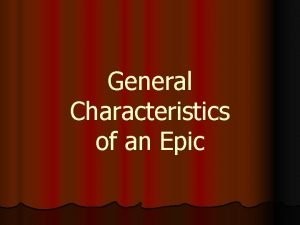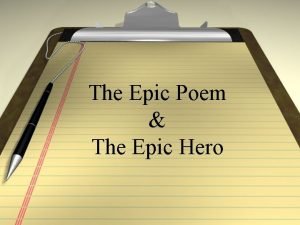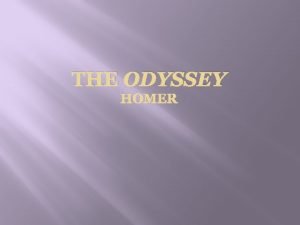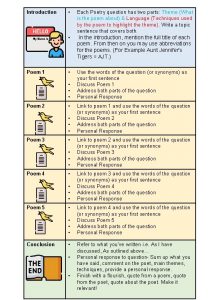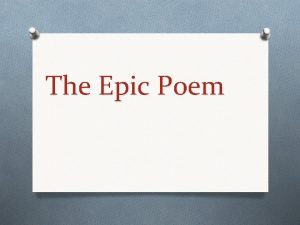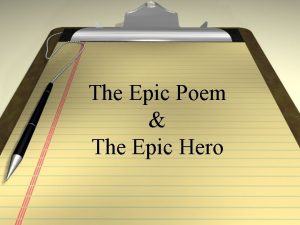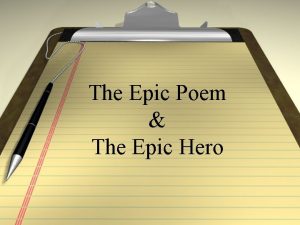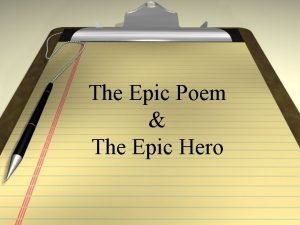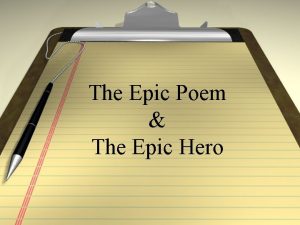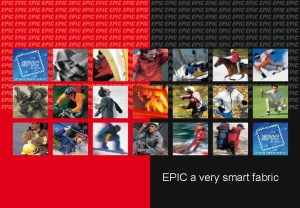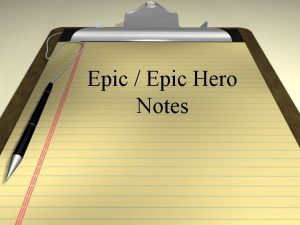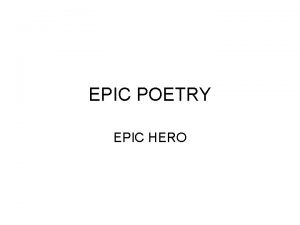The Epic Poem Characteristics Conventions Of the Epic











- Slides: 11

The Epic Poem Characteristics & Conventions Of the Epic Poem

I. Definition of Epic Poem n An epic poem is an extended narrative poem recounting actions, travels, adventures, and heroic episodes and written in a high style. It may be written in hexameter verse, 6 feet per line, and it may have twelve books or twenty four books. n The Odyssey is an epic that has 24 Books

II. Characteristics of the epic poem: n The main character or protagonist is heroically larger than life, often the source and subject of legend or a national hero. n The deeds of the hero are presented without favoritism, thus revealing his failings as well as his virtues.

n The action, often in battle, reveals the more-than-human strength of the heroes as they engage in acts of heroism and courage. n The setting covers several nations, the whole world, or even the universe. n The episodes, even though they may be fictional, provide an explanation for some of the circumstances or events in the history of a nation or people

n The gods and goddesses play an active role in the outcome of the tale. n All of the various adventures relate in some way to a central theme.

III. Conventions (techniques of writing) used in epic poems. Most epics will use these techniques because it helps the storyteller remember the tale. The techniques that are most commonly used in an epic are:

Poem begins with a statement of theme. Example: "Arms and the man I sing" n Invocation to the muse or other deity Example: "Sing, goddess, of the wrath of Achilles" n n Story begins in medias res (in the middle of things).

Histories and descriptions of significant items For example: who made a sword or shield, how it was decorated, who owned it from generation to generation n n Catalogs (of participants on each side, ships, sacrifices)

n Epic simile: also called a Homeric simile, extends a comparison with elaborate descriptive details that can fill several lines of a verse. For Example: The Cyclops “caught two [men] in his hands like squirming puppies” and ate them “gaping and crunching like a mountain lion. ”

n Long, formal speeches by important characters. n Use of patronymics (calling son by father's name) for example: "Anchises' son" n Journey to the underworld

n Use of the number three For example: the hero may attempt to perform some task 3 times n Frequent use of epithets For example: "rosy-fingered Dawn” is an epithet for the sunrise
 Epic poem structure
Epic poem structure Homer work
Homer work Epic conventions in paradise lost book 1
Epic conventions in paradise lost book 1 Types of epic conventions
Types of epic conventions Conventions of epic poetry
Conventions of epic poetry Convention in theatre
Convention in theatre Epic definition and example
Epic definition and example Literary terms epic
Literary terms epic What are the characteristics of an epic
What are the characteristics of an epic Epic poetry elements
Epic poetry elements What is the definition of epic hero
What is the definition of epic hero Homer's first epic poem
Homer's first epic poem
